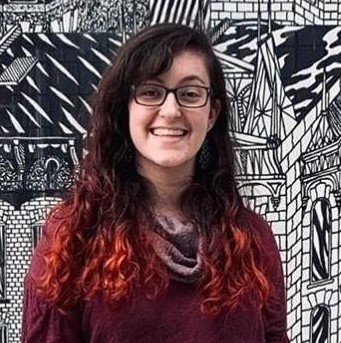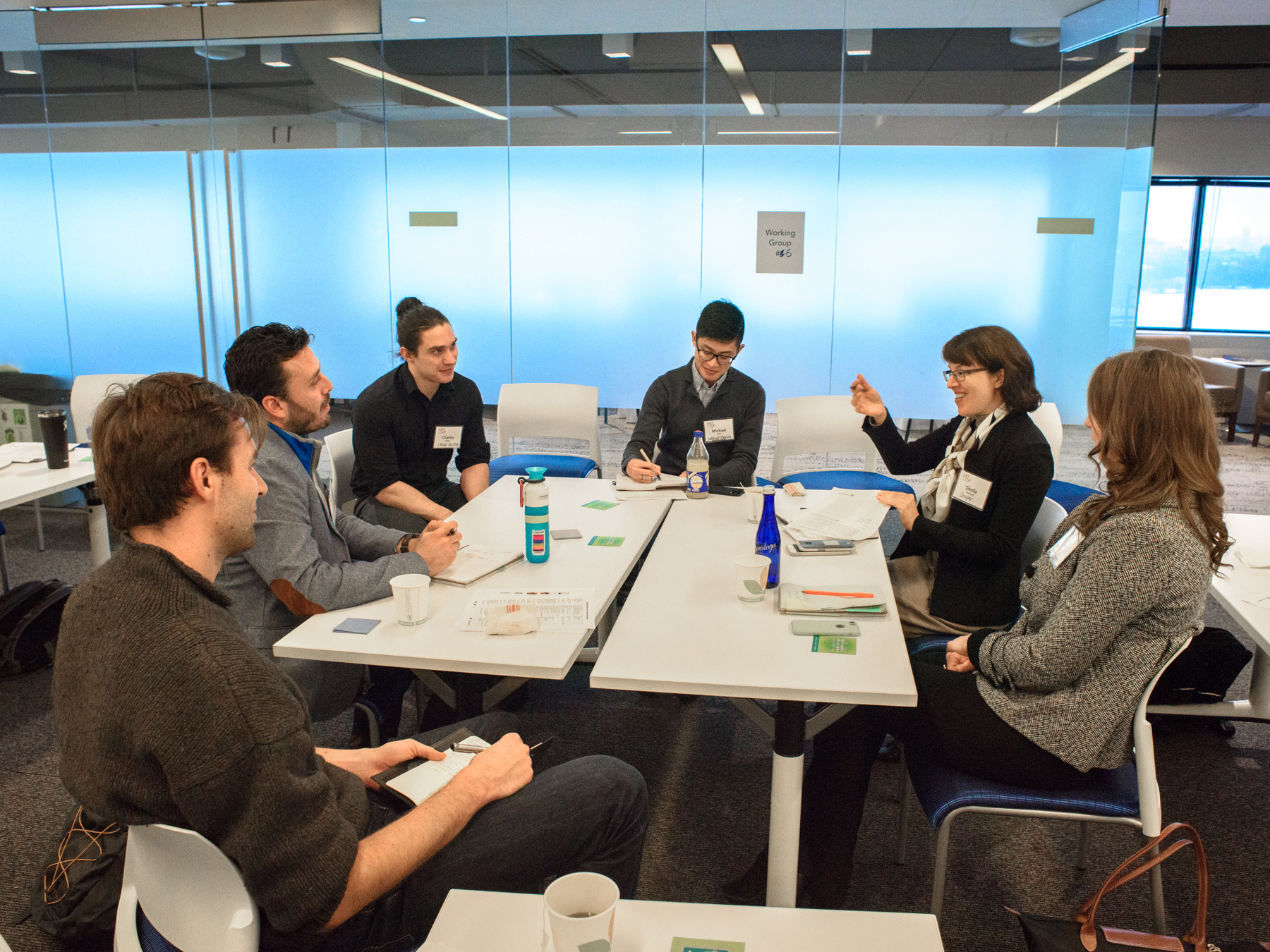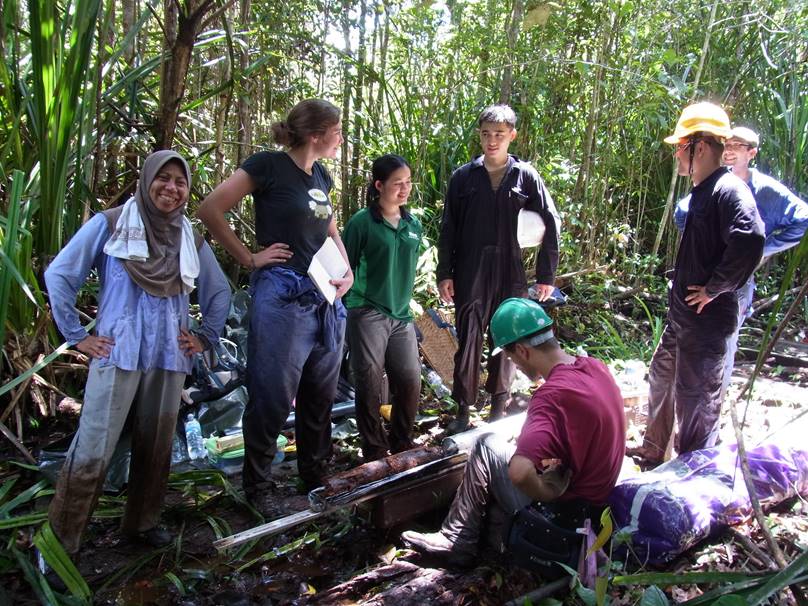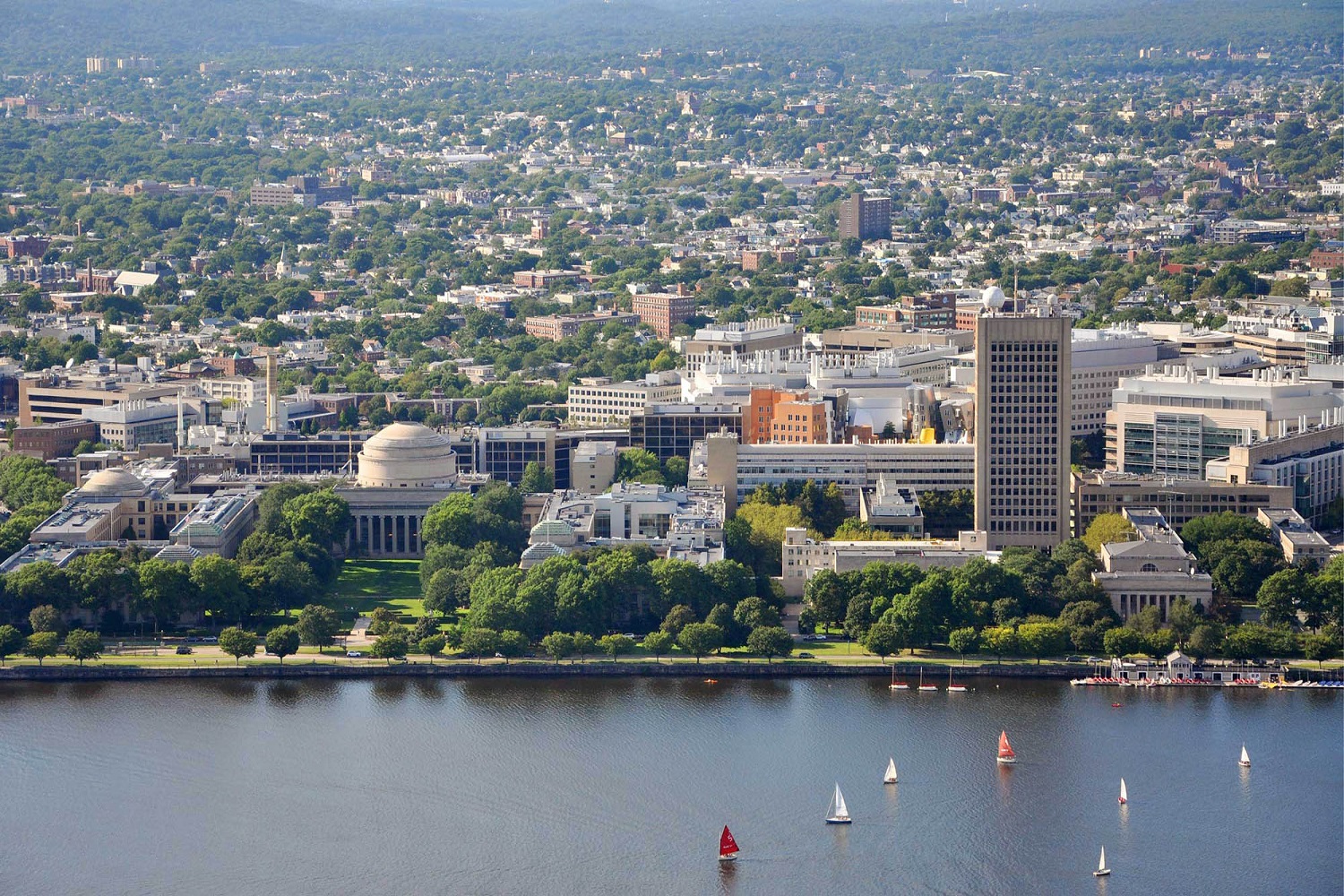Menu
ESI Stories
Student Sustainability Journeys: Rebecca Grekin
by Elizabeth Gribkoff
ESI launched the Minor in Environment & Sustainability in 2018, which means we now have the pleasure of seeing our first cohorts of graduates go out into the world. As they depart MIT, we’ll be interviewing a few of them to understand what worked and didn’t work in their sustainability careers on campus.
Rebecca Grekin spent her summers growing up with relatives in Brazil, where she saw her grandmother collect aluminum cans and other recyclable items to raise money for charities. That sparked an interest in Grekin to find ways to reduce and reuse “what other people considered waste.” In particular, she wanted to research more sustainable alternatives to plastics, which led her to study chemical engineering at MIT.
Starting her freshman year, Grekin pursued a UROP with Devin Currie, a postdoc in Dr. Gregory Stephanopolous’ metabolic engineering lab. She tested out different kinds of bacteria to help develop a “designer community” that could convert food waste into lactic acid – a building block of compostable plastics. That summer, Grekin went to Sao Paolo through MISTI, where she worked with researchers developing a diesel additive from green feedstocks like sugarcane, even co-authoring a paper.
 One challenge Grekin faced at MIT was finding real-world chemical engineering opportunities at school career fairs that would allow her to work on sustainability issues. Even when companies have sustainability divisions, they don’t always highlight those kinds of positions at MIT career fair. So she ended up accepting an internship improving vehicle efficiency at ExxonMobil her sophomore year – a decision that was not easy for her to make. “I grappled with whether or not I was okay working for an oil company even if it was in the service of sustainability,” she says. Ultimately, Grekin decided working for ExxonMobil could help her learn more about the environmental challenges of fossil fuels. She returned her junior year to work on developing a life cycle analysis to help recycle vehicle lubricating oils – a position that allowed her to connect with a range of employees who were also passionate about sustainability.
One challenge Grekin faced at MIT was finding real-world chemical engineering opportunities at school career fairs that would allow her to work on sustainability issues. Even when companies have sustainability divisions, they don’t always highlight those kinds of positions at MIT career fair. So she ended up accepting an internship improving vehicle efficiency at ExxonMobil her sophomore year – a decision that was not easy for her to make. “I grappled with whether or not I was okay working for an oil company even if it was in the service of sustainability,” she says. Ultimately, Grekin decided working for ExxonMobil could help her learn more about the environmental challenges of fossil fuels. She returned her junior year to work on developing a life cycle analysis to help recycle vehicle lubricating oils – a position that allowed her to connect with a range of employees who were also passionate about sustainability.
While Grekin valued her internship experiences at ExxonMobil, she wished she’d had access to more support when deciding whether or not to work there. This led her to connect with ESI’s Education Program Manager Sarah Meyers during her senior year to create the MIT Action Sustainability Corps, or MITASC. MITASC unites sustainability-minded undergraduates and grad students and provides personal and professional development opportunities, such as trainings and grants. “Although the program is in its infancy, I’m excited to see what will happen with it in the future and am proud that I was able to help start something that I wish had existed when I arrived at MIT,” says Grekin.
Grekin also started Waste Watchers – an initiative that stations trained students at campus events to cut down on waste contamination. An audit found that staffing events with Waste Watchers slashed compost contamination from 72% to 10%. Grekin says she saw attendees become frustrated but also engaged when they learned, for instance, that black plastic couldn’t go into the recycling bin. “I think that it’s a really powerful way to kind of get the community at large thinking and caring about these types of things,” she says. In 2019, Waste Watchers was one of two MIT groups to receive a Golden Beaver Award, given to organizations that run “outstanding” programs or have a significant positive impact on campus life.
While at MIT, Grekin sought out classes and extracurriculars that would allow her to combine her love of problem-solving with her passion for sustainability. One of her favorite classes was 11.S938 Solving for Carbon Neutrality at MIT. Students in that class examine MIT’s effort to slash emissions as a case study for the challenges, and solutions, facing leaders worldwide as they move toward a lower carbon future. Grekin appreciated that she got to work with fellow students across MIT’s different schools on “real world” challenges. “That class gave me a little bit of perspective as to why some of these things that I thought were super easy actually aren’t,” she says.
Today, Grekin is pursuing a one-of-a-kind Master’s in Energy Resources Engineering in the Benson Lab at Stanford University. She is also working with the university’s sustainability office to better calculate the emissions in goods that Stanford purchases, from dining hall food to office chairs, and to come up with a plan to reduce those emissions.
During her time at MIT, Grekin realized that she did not have to work for what is traditionally thought of as a green company to have an impact on environmental issues that she cares about. “If you want to, there is a way to integrate sustainability into whatever you’re doing,” she says.
















